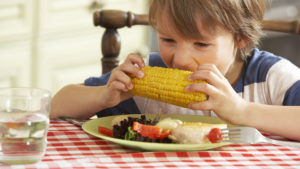Summer is here, and with all the great activities children can enjoy, here are some health and safety tips to help parents.
Injuries & Medication
Q: What are the most common injuries or concerns for children during the summer?
Kids are outside more in the summer. We end up treating a lot more children with:
- Broken bones
- Cuts needing stitches
- Sunburns
While this can be stressful for parents and kids, I would rather have children needing casts and stitches than just sitting on the couch.
Q: With many families traveling during the summer, do children need specific medications or vaccinations for travel?
Typically not. If traveling outside the United States, it is important to speak with your doctor about any travel vaccinations or medicines that should be taken while abroad.
Bug Bites, Repellents, & Seeking Care
Q: The Zika virus has been in the news. What do parents need to know?
Lots of news is emerging about the Zika virus. Pregnant mothers are at higher risk for complications for their unborn child and should speak with their doctor about minimizing risks of infection.
Q: When should children use insect repellent during the summer?
Whenever bugs are biting, especially in the early evenings and nighttime.
Q: How do parents know if an insect bite needs to be seen by a pediatrician?
Most bug bites are red and itchy but resolve after a few days. Contact your doctor if swelling worsens, the site becomes very tender, or there is drainage.
Staying Hydrated & Skin Safety
Q: Is hydration a bigger concern during the summer? What can parents do to help a child stay hydrated?
Most children do a good job of recognizing thirst. The best thing a parent can do is have their kids take frequent water breaks and send water bottles with them to activities.
Q: What are symptoms of dehydration in children and when should they be seen by a doctor?
Serious dehydration from outside play is rare in children. Symptoms of serious dehydration include:
- No urine
- Fast heart rate
- Flushed appearance without sweating
- Abnormal speech or activities.
Those children should be seen immediately.
Q: What’s your advice for parents to protect their children from sunburns? Why is this essential?
Sunscreen use (the higher SPF, the better) is critical. Most parents do a fine job of putting sunscreen on once but then never reapply. Sunscreen should be reapplied every few hours with sun exposure. Sunburns can be very painful and can have long-term effects — skin damage, scarring, and increased skin cancer risk.
Activity Safety
Q: What is important to keep in mind for a child’s safety at lakes or pools?
Attentiveness by caregivers is key. Being in the same vicinity isn’t enough — a young child can drown right in front of a parent if they aren’t watching what the child is doing in the water. A drowning toddler won’t necessarily be thrashing around or making noise to alert the parent that something’s wrong.
Q: During the summer, many parents like to ride bicycles in the nice weather. Is it safe for children to ride bicycles with their parents? If so, what precautions should they take?
Helmets, helmets, helmets. I ask every child who has a head injury from being injured while on something with wheels (skateboard, scooter, bike, hoverboard, etc.) if they were wearing a helmet, and so few were.
Children will wear their helmets only if parents consistently require them to. Make it like putting on a seat belt — every single time!
Q: For children who play summer sports, what are common injuries that would need to be seen by a doctor?
We see lots of strains, sprains, and broken bones. Chronic overuse injuries are common, too, especially as kids are playing the same sport nearly year-round.
Q: What are the symptoms of a sprain?
Sprains usually involve the fairly severe onset of pain, swelling, and limitation in movement. Ankle sprains are very common, as well as wrist sprains.
Q: Should a parent seek medical attention for a child’s sprain? Why or why not?
The real question often comes down to: Is this a sprain or a break? It can be hard for parents to know, so if it’s not clear, a visit to the doctor can help sort this out. Typically children with sprains don’t need to be seen in the Emergency Department or urgent care. Breaks requiring immediate surgery are usually very obvious.
Q: What are the symptoms of a broken bone?
Serious breaks are typically obvious: No one misses a limb that is pointed in the wrong direction or when a bone is sticking out. These children will need to be seen immediately to have the break fixed in the Emergency Department or operating room.
Less serious broken bones can be more subtle and don’t need to be identified as quickly. Often wrist pain after a fall or a limping toddler after a fall will have a small break that requires immobilization (casting or splinting). These can usually be addressed the next day at the doctor’s office if the pain can be managed at home.
Q: When does a cut need stitches and what should a parent do?
If a cut is gaping or won’t stop bleeding, it should be evaluated. Check with your doctor’s office to see if he or she can handle this and avoid a trip to the ER. We are able to glue some lacerations, but in little children, I often prefer to do stitches because repeat injury to the area (common in the under-five crowd!) will often bust open the glue.
Q: Do you have a “best tip” for parents?
The more time and attention you can give your child, the better off he or she will be. Don’t avoid activities because of worries about broken bones, bruises, or other summer maladies. I’d much rather a child experience those than sit on the couch watching TV!

Phil Boucher, MD
Health Expert








